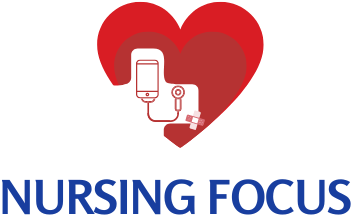Clinical rotations are an essential part of nursing school instruction because they give students practical training and the chance to apply their academic knowledge in authentic healthcare settings. It can be difficult for students to manage their clinical obligations, learning objectives, and patient care during nursing school clinicals. Students can enhance their learning, gain confidence, and improve patient care by using the advice in this article.

Following are some insightful advice to support nursing students in having a fruitful and rewarding practical experience:
1. Preparation:
- Before each clinical rotation, review the patient's medical history, treatment plans, and pertinent nursing interventions.
- Learn about the policies, practices, and documentation needs of the facility.
- Bring the required clinical supplies, including a stethoscope, a penlight, and clinical reference books.
2. Communication And Professionalism:
- Be punctual and appropriately attired according to the facility's dress code.
- Be effective in your communication with your clinical instructors, the medical staff, and the patients.
- Ask questions, seek clarification when necessary, and take an active part in inter-professional collaboration.
3. Reflective Practice:
- Consider your observations and pinpoint areas that want improvement. Think about sharing your reflections with your peers or clinical instructor.
- To pinpoint your strengths and potential growth areas, get input from your clinical teachers, nurses, and healthcare team members.
- Set goals for upcoming clinical rotations using feedback, and keep improving and learning throughout.

4. Self-Care:
- During clinical rotations, take good care of your physical and emotional health.
- To keep your energy levels up, give rest, nutrition, and exercise top priority.
- If necessary, seek assistance from your peers, the professors, or counseling services.
5. Patient-Centered Care:
- Uphold patient privacy, respect their autonomy, and offer sympathetic treatment.
- Speak up for your patients' needs and let the medical staff know what they are.
- Engage patients in their care by educating them and allowing them to participate in decision-making.
6. Considerations for Ethical and Legal Behavior:
- Follow the law and ethical standards when providing treatment for patients.
- When faced with an ethical conundrum, seek advice from your clinical instructor or the medical staff.
- Always maintain patient confidentiality and privacy.

Students must successfully complete their clinical rotations in nursing school in order to obtain significant experience, improve their clinical competencies, and contribute to better patient outcomes. Please keep in mind to approach each clinical rotation with professionalism, passion, and a dedication to lifelong learning. Clinicals offer a special chance to connect theory and practice, putting students on the path to a rewarding nursing profession.
For more nursing tips and guidance kindly check out our mfocusreview.com website
To download our Nursing Focus app, click the following link:
Android Store:
https://play.google.com/store/apps/details?id=com.nursingfocus
Apple Store:
https://apps.apple.com/app/nursing-focus/id1633014109

